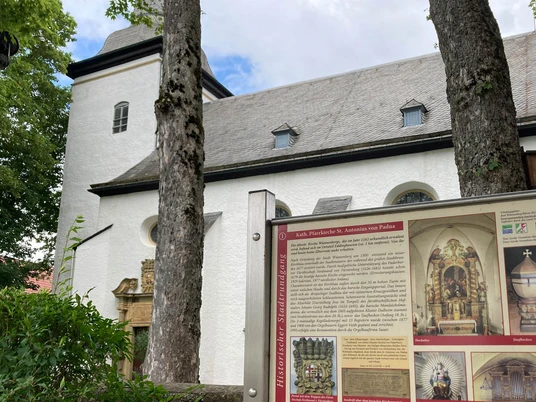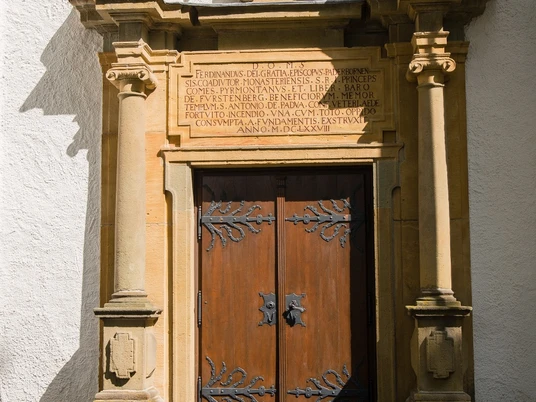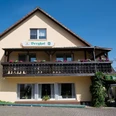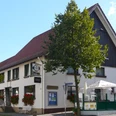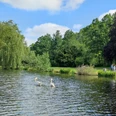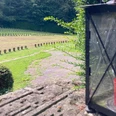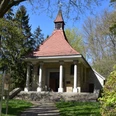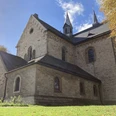- Photos & Map
How would you like to arrive?
- Call
- Description
- Good to know
- Nearby
Its onion dome, which is atypical for the region, is the landmark of the town of Bad Wünnenberg, visible from afar. The interior of the church forms a three-bay hall. The richly elaborated and lavishly decorated keystones of the cross vaults are impressive. On the high altar, which also impresses with its lavish architecture, there is a light painting. This is a painting by the prince-bishop's court painter J. G. Rudolphi from the 17th century.
A communion bench from 1724 was incorporated into the front pew.
The building has been extended twice in more recent times: in 1929, Pastor Runig built the sacristy, and in 1977, the large extension opening onto the altar was built under Pastor Klein.
Sturdy pillars stand to the right and left of the entrance portal. Above the entrance, a Latin inscription records the name and title of the builder, as well as the year.
The translation of the inscription reads:
God . the Almighty - the Most High - Hallowed -
Ferdinand, by the grace of God Bishop of Paderborn, Coadjutor of Münster, Prince of the Holy Roman Empire, Duke of Pyrmont and Baron of Fürstenberg, has, mindful of the benefactions, built this church from the ground up to St. Anthony of Padua, the Confessor, since the old church was devastated by a sudden conflagration together with the whole city. Anno M DC LXXVIII = 1678
On the outer façade is a sundial dating from 1720, an elaborate piece of work on a slate plate that indicates the time of year and hour of the day. It not only shows "what the hour has struck", but also a praise. The inscription reads: A solis ortu usque ad occasum laudabile nomen domini = From the rising of the sun to its setting, praise be to the name of the Lord!
Good to know
Openings
General information
Parking Available
Payment methods
Directions & Parking facilities
Author
lokaler Redakteur
Organization
Bad Wünnenberg Touristik GmbH
License (master data)
Bad Wünnenberg Touristik GmbH
Nearby
